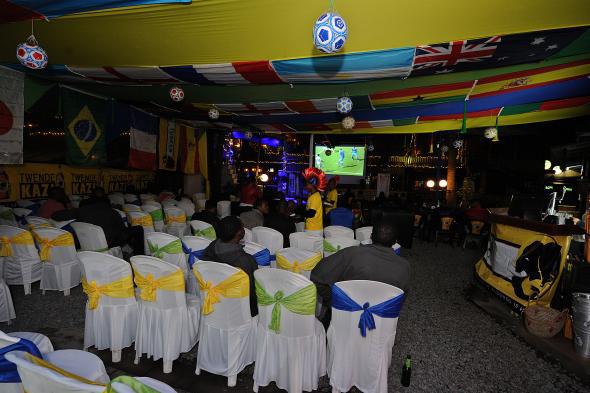The Nigerian extremist group Boko Haram, briefly the object of global interest after the kidnapping of 200 girls from a school in April, had faded from international headlines somewhat as attention shifted to new crises, but the Nigerian insurgency hasn’t faded, and this week has been particularly acute.
Today a bombing struck the Wuse shopping district in the capital city, Abuja, killing at least 21 people. No one has claimed responsibility, but Boko Haram certainly seems like the most likely culprit. The blast came just as Nigeria was preparing to watch its national team play a highly anticipated game against Argentina, and the shopping center that was attacked had televisions showing the game. (Nigeria lost, but will advance to the World Cup’s group stage.)
This comes just days after reports emerged that the group had kidnapped 60 more girls and at least 30 boys from a village in Borno State. The original kidnapped girls have still not been returned. The incidents are just the latest in what has been the deadliest year for Boko Haram activity ever, with at least 3,000 people killed as of June.
And while I might have been making light of ISIS’s entreaties to Lionel Messi yesterday, it’s also becoming clear that terrorist attacks on World Cup viewing events—perhaps taking inspiration from al-Shabab’s 2010 bombing in Kampala, Uganda, which killed 74 people—are becoming tragically commonplace.
Just last week a suicide bomber killed 14 people at an outdoor World Cup viewing site in the city of Damaturu in northern Nigeria.*
Also last week, gunmen—possibly associated with al-Shabab—opened fire on a World Cup viewing event in Mpeketoni on the coast of Kenya.
This Monday in Beirut, a Lebanese security officer was killed after a suicide bomber detonated at a checkpoint. The officer may have prevented the bomber from attacking a crowd of nearly 200 people who had gathered to watch a game between Brazil and Cameroon at a nearby café. (Beirut suffered another explosion today, this time at a downtown hotel. The country’s latest round of violence likely related to the ongoing civil war in neighboring Syria.)
Not surprisingly, the governments of Kenya and Nigeria have both warned citizens about viewing games in public.
Some terrorist groups—particularly Boko Haram, which is specifically dedicated to ridding Nigeria of Western cultural influence—may have a problem with soccer itself. But it seems more likely that World Cup viewings are targeted mainly because they involve large numbers of people congregating in public, at events where they’ll most likely have their guard down.
As Kayode Ogunbunmi explains for Quartz, while most Nigerians do own TV sets, the comfort and festive atmosphere of public viewing centers have made them a more popular way to watch big games.* So far, the terrorist threats haven’t deterred the crowds.
Nigeria plays again on Monday. Let’s hope everyone stays safe.
*Correction, June 25, 2014: This post originally misspelled Damaturu. It also misspelled Kayode Ogunbunmi’s first name.
